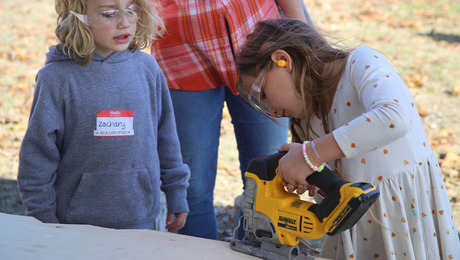From 2000-2010, I was working quite a bit ‘in the field,’ and had to supply my own tools. I quickly became a fan of the Ni-Cd battery powered tools. As I entered the new decade and started getting additional tools, I began to aquire Li-Ion battery powered tools. All tools are from quality sources; we’re not talking no-name Chinese kludge here.
Then my circumstances changed. Most of my work is now either at home, or on industrial sites where much larger, corded tools are provided by the employer (or customer)
At home, I started finding more and more of my Ni-Cd batteries would not hold much of a charge. Yesterday, going to use a Li-Ion powered tool I had not used for a year, I discovered that both of the batteries indicated ‘faulty’ on the charger.
What’s the deal? Do all these batteries have quite limited lives, regardless of use?
I’m beginning to re-think the “convenience” of battery-powered tools. Investing in a short cord and a hand-carried generator is beginning to look like a much better deal.
Look at it this way: About half of my cordless tools have unique batteries. That is, I can use the batteries only in those tools, or in a very few other tools from the same maker. Many of the tools themselves are unique to their makers, so the idea of having a common battery platform is a non-starter.
I have this silly expectation that I ought to be able to set a tool on a shelf for several years, charge it up, and have it run like new. Am I being unreasonable?
What do you say? What has been your experience?















Replies
Do batteries have limited life? You bet! They have a limited number of charge/discharge cycles, and, furthermore, a limited overall life of maybe 5-10 years, even under ideal circumstances. This holds for Ni-Cad, Li-ION, N-MH and any other current technology.
Further, these batteries do not like to be neglected, and if allowed to self-discharge "flat" for too long will die an early death. Most need to be recharged every 3 months or so to prevent this. (The old Ni-Cads are probably the best in this regard -- they don't mind being stored flat nearly as much as the others.)
One thing you can do is get your old batteries rebuilt, at your local Batteries Plus or wherever. This is often half the price of new batteries, and you end up getting "fresh" cells that haven't sat in a warehouse for a year (something that costs you a lot of battery life when you buy replacements).
I have several times recommended that folks seeking to buy a tool for "occasional" use NOT get a rechargeable, in situations where the cord would not be a terrible inconvenience. It's far more inconvenient to need the tool and have it not work due to a bad (not just dead) battery.
Battery Rebuild
I have NiCads and know that they can be rebuilt. Can Lithium Ions be rebuilt? Ever try to rebuild NiCads yourself with the solderless system from BATTRX?
Most batteries can be rebuilt (though whether it's worth it or not is always a question). I haven't rebuit my own in years, though -- I go to Batteries Plus and have them do it, since they have a selection of parts and the spot welder and so forth.
apples vs. oranges, just depends....
You pay a premium for the convenience of cordless tools in about any circumstance.It just depends on your immediate needs which is better.
For example a couple of my main tools are a 7 1/4'" milwaukee corded saw and a makita 18v lithium ion cordless impacter. You'd have to pry either of these tools from my cold dead fingers to get me to go cordless [ full time] with a circ saw or corded with an impact driver.
If I had to choose between my corded sawzall and my cordless the plug in would win but sometimes the battery powered unit totally rocks....